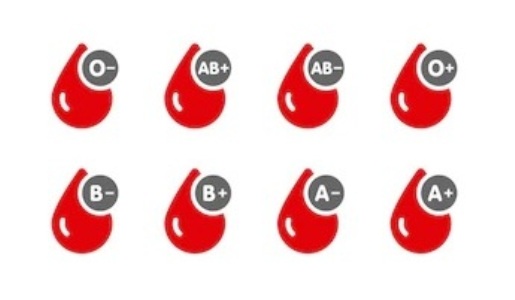
Blood Group-Wise Diet: What to Eat and What Not to Eat Based on Blood Group? Learn how to stay in shape.
Food tailored to your blood type can be digested more efficiently and provide the most benefits to your body.
There are various types of blood groups. These eight blood types, O+, O-, A+, A-, B+, B-, AB+, and AB-, have distinct characteristics. Several studies have found a link between blood type and the risk of heart disease. According to experts, following a diet based on a person’s blood type has the potential to help them lose weight.
According to experts, every food reacts chemically with your blood type. This means that if you eat food tailored to your blood type, it will be digested more efficiently and provide the greatest benefit to your body.
Type A blood group:
Meat products should be avoided by people with type A blood. Fruits, vegetables, beans, legumes, and whole grains should all be consumed. Because of the “sensitive immunity” of this blood type.
Type B blood group:
Green vegetables, eggs, certain meats, and low-fat dairy products are all good choices. Corn, wheat, lentils, tomatoes, peanuts, and sesame seeds should all be avoided. While some meats are permitted, chicken should be avoided.
Type AB blood group:
This blood type should consume seafood, tofu, dairy products, beans, green vegetables, and grains. Corn, beef, and chicken, on the other hand, should be avoided. People with blood type AB have less stomach acid. Caffeine, alcohol, and smoked or curing meats should all be avoided.
Type O blood group:
The members of the O blood group can consume high-protein foods. Lean meats, poultry, fish, and vegetables are examples of these. They can limit their intake of grains, beans, and dairy.
What are the limitations?
There are several limitations to a blood type diet. For example, you must strictly adhere to it, which means it can dictate your cooking and shopping lists. You should also avoid certain nutrients.
Do these diets have any effect?
Experts emphasize the importance of following healthy diet plans and avoiding processed foods, which are known to aid in weight loss and overall health.
As people get older, they are more likely to develop problems such as high blood pressure, low blood pressure, or diabetes. As a result, people of all blood groups should consult a doctor about their diet at least once. The doctor can recommend the best diet for an individual based on their medical condition.
You may like to read: